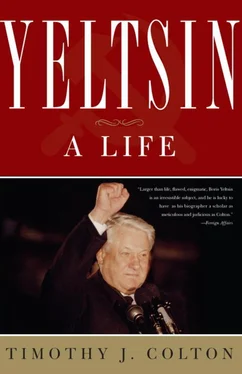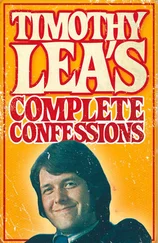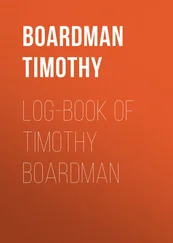For those who came of age in the shadow of such barbarism, Yeltsin among them, putting a lid on the recapitulation of terror was a psychological defense mechanism and insurance against repercussions from babbling about it. The trouble was that over the years and the decades the repression fed on itself. The later the sufferings of the elders were owned up to, the more the silence had to be explained, which in turn raised the cost of making a clean breast of it and finally moving on.
Nikolai and Klavdiya Yeltsin, their vagabondage over, settled down in Berezniki, as did Nikolai’s three brothers. Boris lived with his parents there until he headed for Sverdlovsk and a higher education in 1949.
Berezniki was the second city of Perm oblast’, the principal Soviet term for province after 1929. At 59° 24’ north, it is set in taiga of spruce, silver fir, and the spindly birches that lend it its name ( bereznik or bereznyak is birch wood), and has only 100 to 110 frost-free days a year. In population, it was 65,000 in 1939, not counting internees, and maybe 80,000 in 1950. The Perm area, having been part of a region centered in Sverdlovsk since 1923, was made an oblast in 1938, the last section of the Urals freed from the control of Sverdlovsk. From 1940 to 1957, it and its capital would bear the name Molotov, after Stalin henchman Vyacheslav Molotov.
The enveloping forest has a pellucid, rustling beauty, and every June and July it has “white nights” as enchanting as those of St. Petersburg or Stockholm. But as factory towns go it would be hard to think of one much bleaker than Berezniki when the Yeltsins made their way there. Decades before, an 1890 travelogue, describing an approach by vessel up the Kama from Perm, drew a panorama of man-made desolation: “The closer you get to Usol’e, the grimmer and more mournful the riverbanks. You no longer see forest; the fields are without greenery…. On both banks… you find salt barns, linked by dark, cold tunnels. Great black saltworks stand out against the pewter sky and create an impression of gloom.” 1By the 1930s the new city’s factories were turning out soda, mineral fertilizers, dyes, and pesticides. Its residential center was built about five miles inland, to keep travel time to the workplaces there to a minimum. During World War II (the Great Patriotic War of 1941 to 1945, as the Russians knew it), a magnesium and titanium mill was added to the chemical works. Berezniki was awash in refugees and wounded servicemen, several schools served as rehab hospitals, and evacuated factory machinery was stored in mine shafts and chutes. In addition to gunpowder and conventional explosives, Berezniki was one of five cities in the Soviet Union to produce toxic compounds for chemical weapons. Workers made mustard gas, lewisite, hydrogen cyanide, and adamsite and decanted thousands of tons of them into canisters for the army and air force. The ecological byproducts were horrendous. Contaminants spewed unfiltered into the water, atmosphere, and soil; puddles of brine and effluent pockmarked the townscape; tailings coughed up by the mines, ashes, and chemicals all sprawled in windblown dunes up to 250 feet high; houses and factories could sink into karsts and mining cavities. All these years later, Berezniki is one of the most polluted cities in Russia. Industrial smoke and fumes still foul the air. A containment pond for liquid wastes, built next to the Kama after the war, glows an iridescent green and does not ice over in wintertime. Berezniki’s children have abnormal rates of morbidity and are eight times likelier to have blood ailments than those in other urban centers. 2
Never far away in the Yeltsins’ allotted hometown were the barbed wire, watchtowers, and guard dogs of the Gulag. A stockade for 11,000 German and Axis prisoners of war was set up in 1943. A new strict-labor camp for Soviet convicts came in 1946 to expand a chemical plant, and to build another in 1950, when its workforce capped off at 4,500. Across the Kama artery in Usol’e lay a camp specializing in lumbering (with 24,900 inmates in 1940 and 3,600 in 1953). Twenty miles upriver at Solikamsk, the location of the Stroganovs’ first salt pit, was a small camp for building a pulp and paper mill (4,300 inmates in 1938) and a big one for lumbering (32,700 in 1938); at Kizel, forty miles south, captives logged and built hydro dams in two waves (with peaks at 7,700 in 1946 and 21,300 in 1953). 3Taken together, this unfree labor dwarfed the legally free workforce of Berezniki. 4
Soviet cities were cauldrons for social change and for the conversion of peasants into proletarians. But the size of the inflow from the villages, the tenacity of agrarian identities, and the systematic underinvestment in urban infrastructure meant that the cities themselves were substantially peasantized in the 1930s and 1940s. 5When the Yeltsins first walked its streets, Berezniki had almost no pavement, no sewage system, and no public transit. It had some asphalt and sewage mains by 1950, though still no buses or streetcars. And yet, Berezniki had been laid out by planners from Leningrad as a “socialist city,” and there was some attention to culture and leisure: the Avangard cinema, a live theater, a museum, several stadiums, a park and arboretum on Stalin Prospect (Lenin Prospect today). Postwar apartment houses had “elements of the classical orders, immense window apertures reminiscent of Roman triumphal arches,” and “obelisk-like turrets in memory of those who had fallen” in the crusade against fascism. 6
Nikolai Yeltsin made the best of the situation. He bootstrapped himself during and after the war from woodworker at the bench to foreman, work superintendent, dispatcher, planner, and head of several technical bureaus at Sevuraltyazhstroi. In wartime Klavdiya Yeltsina did twelve-hour shifts as a dressmaker. After 1945 she was that rarity in the urban USSR, a housewife who worked wholly in the home. She reared their two sons and a daughter, Valentina, born in July 1944, took in sewing to pad out Nikolai’s income, and cared for her parents, who did not work once they were out of exile.
Debarking in 1937, the family found lodgings for several months in Usol’e, from where Nikolai commuted to work by ferry (there was no bridge over the Kama until the 1950s). After about a year shoehorned with three other households into a scruffy timber cottage in Berezniki, they were given one of the twenty rooms in a new two-story wood barracks, in the adjacent Zhdanovo Fields section of town. It had outdoor plumbing (privies and a well) and was so leaky and drafty that the children huddled on winter nights with a nanny goat. The animal, Polya, was also a source of fresh milk. In Confession on an Assigned Theme, Yeltsin fastened on the auditory porousness of the thin walls. Were any tenant to mark a name day, birthday, or wedding, someone would put on the windup gramophone “and the whole barracks would be singing…. Quarrels, conversations, scandals, secrets, mirth—the entire barracks could hear, everyone knew everything. It could be that is why I still remember the barracks with such revulsion.” 7Across the street was the city’s only public bathhouse, where a weekly soaping and soaking could be had for pennies. Next to it was the bustling farmers’ bazaar, one of the thousands in Soviet towns where peasants since 1935 had been allowed to sell, at unregulated prices, food they grew in plots behind their homes. On another side were sheds for the barracks dwellers’ goats, chickens, and geese, while cattle grazed in the unbuilt portion of Zhdanovo Fields. The log house and the barracks have long since been torn down. 8
In 1944, in anticipation of Valentina’s birth, Nikolai used his construction skills and tools and, it may be hazarded, his connections with materials suppliers to erect a private house, as was permissible under Soviet legislation. It was in brick and stood on a parcel of land known as the Seventh Block, facing First Pond, the water reservoir for the old Stroganov mine. The home’s four rooms and a kitchen were enough to accommodate the Starygins comfortably when they arrived from Serov in 1945. Boris Yeltsin did not note this change of circumstances in his autobiography, saying only that they lived in the Berezniki barracks for ten years (the actual figure was about six) and passing over how they were housed after that. More than likely, he feared some readers would impute the family’s acquisition of such an asset to greed or privilege. A private house (but not the land beneath it, which was owned by the state) was a valuable nest egg, and protection against the inflation that ate into cash savings. 9
Читать дальше












